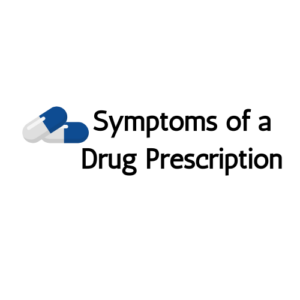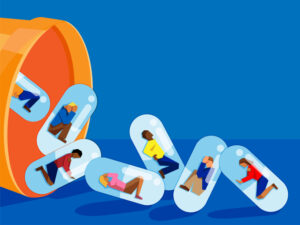Learn More ♥ Live Healthier

Increase Your Awareness with Basic Facts about Risperidone
Nikki and Anne Heart ♥ January 2024

*Picture displayed is a general pill and should not be used as a pill identifier.
The following highlights the facts. More information can be obtained through the sites listed below as well as many other informational sites regarding prescription drugs. Medication facts can change. Make sure you have all up-to-date information.
Quick facts YOU Need to Know
Risperidone, marketed as Risperdal
Class of drug called atypical antipsychotics.
Oral Risperidone FDA approved indications are:
- Schizophrenia, over the age of 13
- Bipolar 1 acute manic or mixed episodes as monotherapy, over age 10
- Bipolar 1 acute manic or mixed episodes adjunctive with lithium, in adults
- Autism-associated irritability, age 5 and up
Long-acting Risperidone injections has been approved for:
- Schizophrenia and maintenance of bipolar disorder
There are also many varied non-FDA approved uses for risperidone.
Possible side effects of Risperidone:
- nausea
- vomiting
- diarrhea
- constipation
- heartburn
- dry mouth
- increased appetite
- increased saliva
- weight gain
- stomach pain
- anxiety
- agitation
- restlessness
- difficulty falling asleep or staying asleep
- breast enlargement or discharge
- late or missed menstrual periods
- decreased sexual ability
- blurred vision
- back, muscle, or joint pain
- dry of discolored skin
- difficulty urinating
- dizziness, feeling unsteady, or having trouble keeping your balance
Some side effects can be serious. If you experience any of the following symptoms, call your healthcare provider immediately:
- fever
- muscle stiffness
- falling
- confusion
- fast or irregular pulse
- sweating
- unusual movements of your face or body that you cannot control
- faintness
- slow movements or shuffling walk
- rash; itching; hives; swelling of the face, throat, lips, and eyes; diffuclty swallowing or breathing
- painful erection of the penis that last for hours
- cough, chills and/or other signs of infection
Sources used:
- National Library of Medicine, McNeil SE, Gibbons JR, Cogburn M. Risperidone. [Updated 2023 Jan 16]. In: StatPearls [Internet]. Treasure Island (FL): StatPearls Publishing; 2023 Jan-. Available from: https://www.ncbi.nlm.nih.gov/books/NBK459313/, accessed January 3, 2024.
- MedlinePlus, National Library of Medicine, accessed January 3, 2024.

Studies have shown that older adults with dementia who take antipsychotics such as risperidone have an increased risk of death during treatment.
Risperidone is not approved by the FDA for the treatment of behavior disorders in older adults with dementia.
- Inform you healthcare prescriber of all medications, including non-prescription, vitamins, and supplements you are taking.
- Inform your healthcare prescriber if you have ever used street drugs or large amounts of alcohol.
- Inform your healthcare prescriber of all current or past medical conditions.
- Tell you healthcare prescriber if you every had any negative reactions to medications for mental illness.
- Tell your healthcare prescriber if you are pregnant or plan to become pregnant.
- Tell you healthcare prescriber if you are breastfeeding.
Learn More
♥
Live Healthier


Medical Disclaimer: We share informational resources that are intended to help you with your self-care plan. We are not professionals. We write based on personal experience and personal research.
Nothing on this Website is intended to be taken as medical advice. The information provided on the Website is intended to encourage, not replace, direct patient-health professional relationships. Always consult with your doctor before altering your medications. Adding nutritional supplements may alter the effect of medication. Any medication changes should be done only after proper evaluation and under medical supervision.
General Disclaimer: This site contains links to other internet sites. We are not endorsing any products or services in these sites nor are we endorsing or did we approve information within these sites. Each site contains its own “Privacy Policy”,



